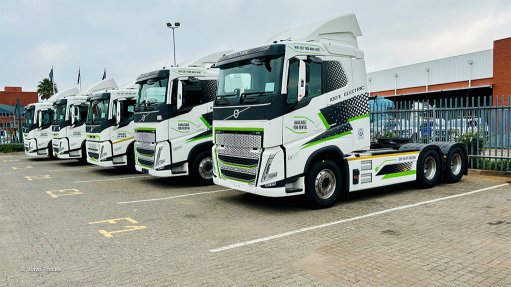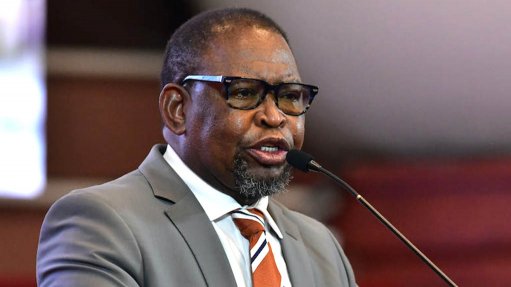Cities need to invest up to $5.4tn a year to develop resilient infrastructure


ALISON GROVES A focus on sustainability will help build cities and spaces for rural communities that are liveable and resilient
All forms of infrastructure are critical for the expected global urban growth, yet cities face a $4.5-trillion- to $5.4-trillion-a-year investment gap to develop resilient infrastructure. Smart cities are a response to infrastructure and funding challenges, says consulting engineering firm WSP building services Africa director Alison Groves.
Instrumental to achieving sustainable, smart cities is harnessing digital technology and communication to enable connected cities, adds information and communication technology multinational Ruckus Networks sub-Saharan Africa sales director Riaan Graham, in a press release co-written with Groves.
Urbanisation, demographic shifts, environmental changes and new technologies are reshaping the way city leaders view sustainability, as well as how they create and deliver on public services to address new dynamics. Smart cities will help address the economic and social inequalities that these dynamics create by providing physical and digital connectivity for all citizens.
Cities account for between 70% and 80% of the world’s economic activity, which will increase as cities grow. In the next 35 years, the population in cities is estimated to expand by an additional 2.5-billion people. Cities are a vital component for connectivity, public health, social welfare and economic development.
Connectivity is a foundational layer for smart cities, and includes providing Internet access and new digital services.
“Cities are leveraging smart and public WiFi for many applications beyond free public access to the Internet, such as for routing traffic, monitoring air pollution, conserving water and improving public safety, as well as encouraging direct participation, interaction and collaboration with local government and public services,” says Graham.
According to an International Data Corporation smart city information brief, aspects such as networked light-emitting diode street lighting can provide a reduction in operations and energy costs between 25% and 50%.
Similarly, connected garbage bins can yield more than a 50% reduction in garbage collection costs; cost reductions between 20% and 30% can be obtained through smart parking; and smart water systems can reduce clean-water losses, as a result of leaks and burst pipes, by 40%.
“These capabilities are key to building sustainable cities and managing resources and services,” says Graham.
However, Groves warns that planning, designing and building infrastructure in developing countries require that planners be conscious of the two poles of the development cycle.
“On one end, we have cities and urban centres that are faced with challenges to maintain and expand the capacity of existing infrastructure networks. These nodes have long-term infrastructure planning in place, which includes introducing smart technologies into the cityscape that will make the cities more connected and nimble in the face of future disruption and service demands.
“At the other end, we have vast areas that are underdeveloped, geographically dispersed, remote and with limited physical and digital access to urban nodes.”
Therefore, to support the growth of populations, industries and economies, long-term planning must be approached with a vision to meet the needs of both ends of the development cycle and the intermediate cases, says Groves.
“As we look to build cities and spaces for rural communities that are liveable, resilient to disruptions and future-proof, sustainability is fundamental.”
Sustainability ensures that planning, project delivery and development processes focus on the needs of communities without sacrificing capacity to meet the needs of future generations. It also balances priorities across competing demands, including the economy, community needs and environmental quality, as well as equity, health and wellbeing, energy, water, material resources, transportation and mobility needs,” adds Groves.
Resilience and liveability must be the outcomes of planning and design processes. Achieving these will require balancing local environmental, social, economic and climate risk priorities through a robust planning and data-driven design process.
“The goal should be to build people-centric, integrated, connected, smart, nimble and resilient liveable spaces where societies can thrive,” she concludes.
Story highlights:
* Digital technologies and communication are a key element of sustainable, smart cities.
* Planning that is focused on sustainability is crucial to develop resilient liveable cities and to develop rural spaces without sacrificing capacity to meet the needs of future generations.
Comments
Press Office
Announcements
What's On
Subscribe to improve your user experience...
Option 1 (equivalent of R125 a month):
Receive a weekly copy of Creamer Media's Engineering News & Mining Weekly magazine
(print copy for those in South Africa and e-magazine for those outside of South Africa)
Receive daily email newsletters
Access to full search results
Access archive of magazine back copies
Access to Projects in Progress
Access to ONE Research Report of your choice in PDF format
Option 2 (equivalent of R375 a month):
All benefits from Option 1
PLUS
Access to Creamer Media's Research Channel Africa for ALL Research Reports, in PDF format, on various industrial and mining sectors
including Electricity; Water; Energy Transition; Hydrogen; Roads, Rail and Ports; Coal; Gold; Platinum; Battery Metals; etc.
Already a subscriber?
Forgotten your password?
Receive weekly copy of Creamer Media's Engineering News & Mining Weekly magazine (print copy for those in South Africa and e-magazine for those outside of South Africa)
➕
Recieve daily email newsletters
➕
Access to full search results
➕
Access archive of magazine back copies
➕
Access to Projects in Progress
➕
Access to ONE Research Report of your choice in PDF format
RESEARCH CHANNEL AFRICA
R4500 (equivalent of R375 a month)
SUBSCRIBEAll benefits from Option 1
➕
Access to Creamer Media's Research Channel Africa for ALL Research Reports on various industrial and mining sectors, in PDF format, including on:
Electricity
➕
Water
➕
Energy Transition
➕
Hydrogen
➕
Roads, Rail and Ports
➕
Coal
➕
Gold
➕
Platinum
➕
Battery Metals
➕
etc.
Receive all benefits from Option 1 or Option 2 delivered to numerous people at your company
➕
Multiple User names and Passwords for simultaneous log-ins
➕
Intranet integration access to all in your organisation



















